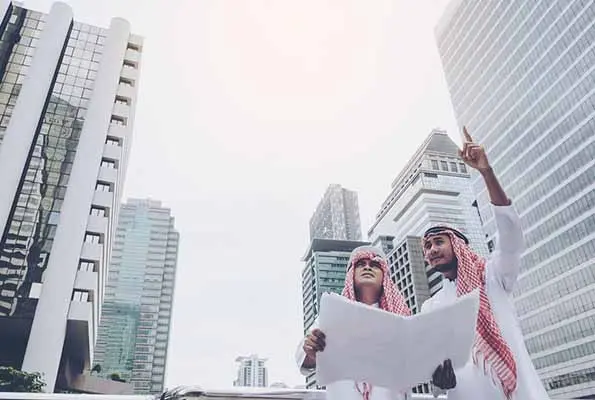S&P Global reports that the economic diversification agenda undertaken by the Kingdom of Saudi Arabia, known as “Vision 2030”, will get a major boost in 2024, as the Gulf nation’s real estate transactions will soar in the coming days.
According to a report by S&P titled “GCC Real Estate How Credit Stories Have Evolved,” the Gulf Cooperation Council region’s economy might rise by as much as 3% in 2024, which would be advantageous for the Kingdom’s real estate industry.
The growth was ascribed to both the ongoing expansion of the oil industry and a 5% gain in non-oil economic activity, especially in Saudi Arabia and the United Arab Emirates.
The report stated further, “Real estate transactions in 2023 decreased as a result of sensitivity to high-interest rates and price rises. With support from ‘Vision 2030’ investments, we anticipate continued strong demand that will draw in new companies and foreign residents.”
S&P went on to say that the mortgage industry is expected to benefit from the interest rate decline that began in the second half of 2023, following a 35% decline for the entire year, due to a new visa regime that permits foreign nationals to own real estate.
A 2-3% population increase will be good news for the Kingdom’s real estate industry, the report stated, while outlining how the Gulf governments’ initiatives to encourage foreign investment and new enterprises, such as new technology regulations, corporate ownership laws, and visa requirements, maintain this.
The report also expressed hope for a robust tourism recovery bolstered by public policies and low inflation that would protect consumer spending power. The possibility of interest rate reductions starting in the second half of 2024 may improve affordability even more.
Regarding risks, S&P stated that geopolitical tensions continue to be a source of concern due to their ability to affect both regional and global economies.
The report went on, “The scarcity of real estate in Riyadh will keep prices rising and discourage some purchasers due to high lending rates.”
Furthermore, a slowing global economy may result in less demand from overseas consumers, and a potential drop in oil prices may have an impact on the interests of local consumers.
Due to rising supply and pressures from the global economy, S&P forecasted a cooling of Dubai’s residential real estate market over the following 12 to 18 months.
However, in preparation for the upcoming cyclical slump, developers in the emirate have strengthened their cash holdings and improved their credit health.
Since 2021, there has been a notable increase in prices and transaction volumes, especially in the Dubai real estate market. This has been a major factor in the local players’ quick recovery of credit quality.
Abu Dhabi’s residential real estate market, on the other hand, has not appreciated as quickly as Dubai’s, indicating a lesser chance of a market reversal.
The paper claims that following the boost from the 2022 World Cup, Qatar’s real estate market is currently experiencing a “cycle correction.”
Price and rental drops have resulted from oversupply, and efforts to maintain these levels of demand despite limited new supply are anticipated to last for the next two to three years.
Overall Perspective
More than 85% of real estate firms with a GCC (Gulf Cooperation Council) grade have a stable outlook, meaning that S&P anticipates consistent operating performance.
The dynamics of the real estate markets across the Gulf nations vary. However, following a few turbulent years that saw downgrades, recoveries, and restorations of credit profiles for most of the rated real estate businesses in the region, rated sector companies enjoy generally steady credit quality, the report continued.
Most GCC-rated real estate firms have reached or exceeded their 2019 rating points.



